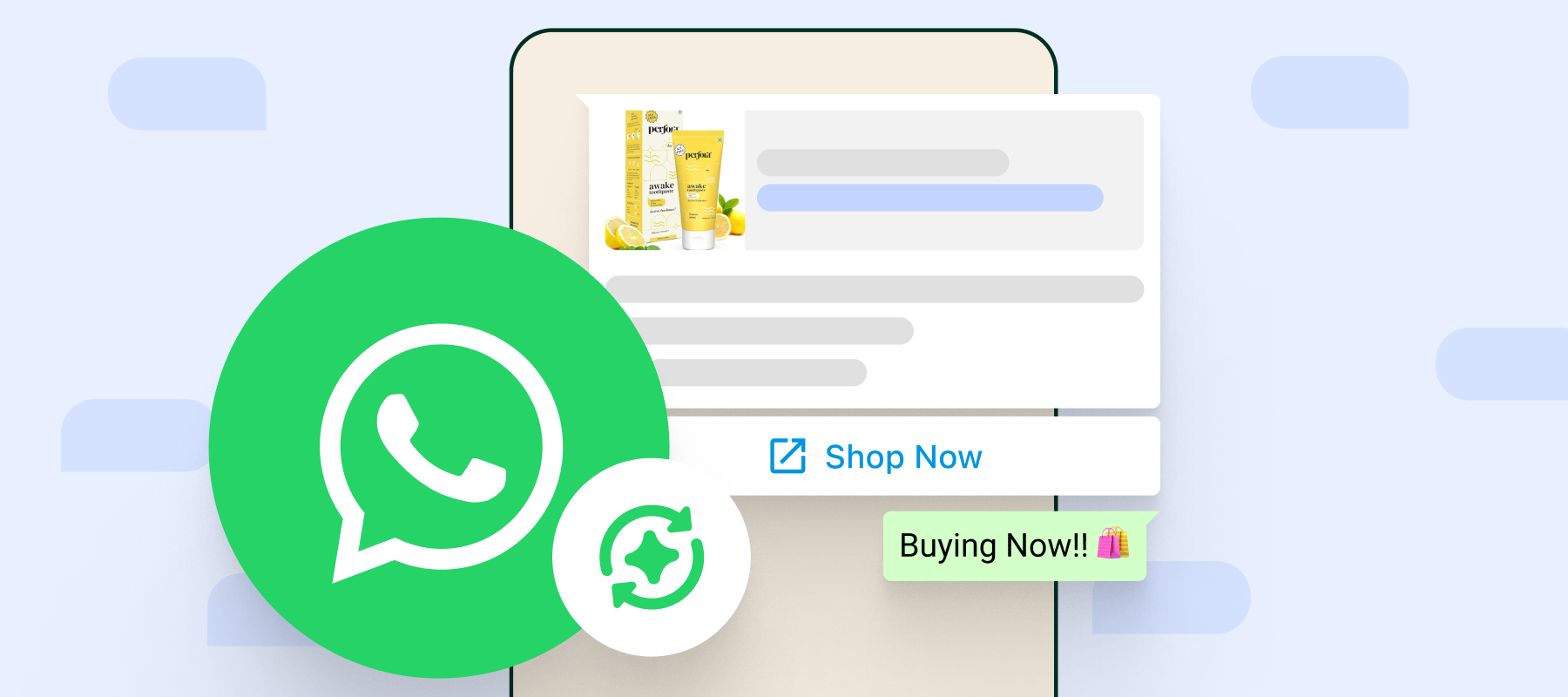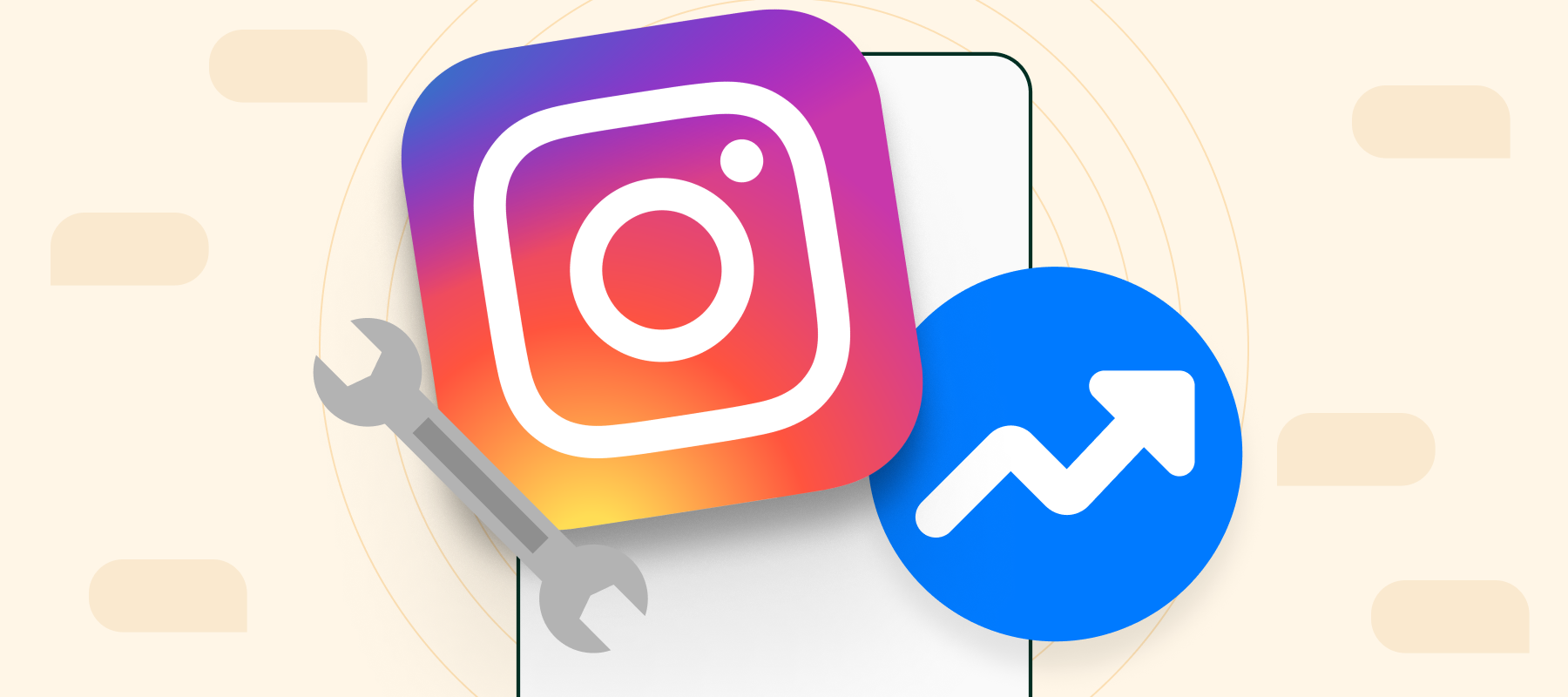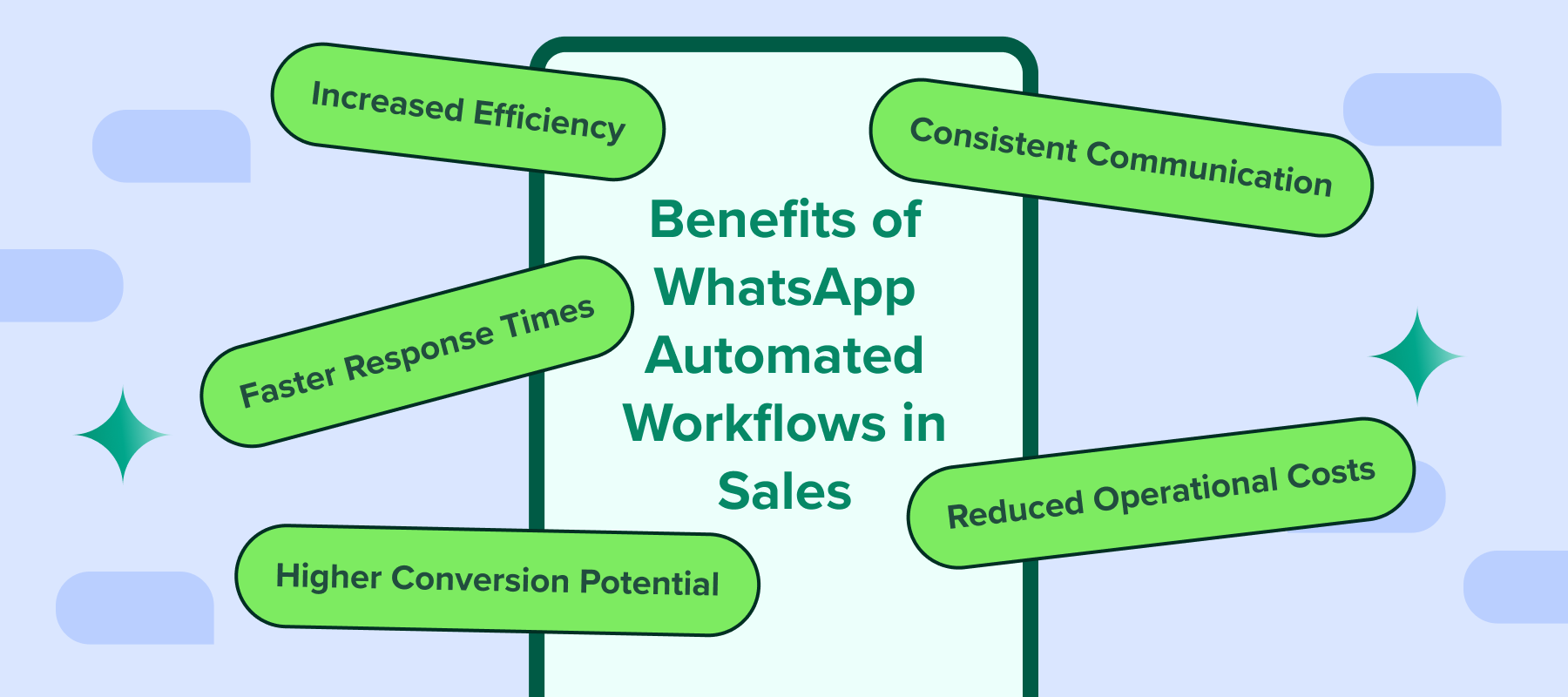WhatsApp has become undeniably a staple in eCommerce, with more brands starting to use it for sales, marketing, and support. And as more customers start getting comfortable engaging with brands on the chat app, there is a need to explore automation to meet expectations and demands at scale.
In this post, we will take a look at why eCommerce brands are increasingly relying on WhatsApp automated workflows for messaging.
Benefits of automated WhatsApp workflows for eCommerce
These are some of the major benefits of automated WhatsApp workflows for eCommerce:
24/7 customer engagement
Automation can ensure the receiving of instant responses for customer queries, irrespective of whether it is business hours or not, thus enhancing customer support. From order updates to FAQs, WhatsApp workflows can keep the interactions seamless and timely.
Reduced operational costs
Compared to the expenses businesses face when handling customer queries manually, automated workflows can help cut down on operational costs significantly by reducing the need for large support teams to handle routine queries.
Higher conversion rates
Timely automated abandoned cart reminders, personalized discounts, product recommendations, etc. can encourage customers to complete purchases and buy more from the brand, thus improving sales and minimizing drop-offs.
Improved customer satisfaction
Quicker responses and proactive communication, that are combined with personalization and tailored incentives can help businesses provide their shoppers with improved and satisfactory experiences, consistently.
Resource-effective scalability
As customer interactions grow along with the brand, automation allows the handling of these higher volumes, without needing additional human agents. Whatever the scale, AI chatbots and automated workflows can ensure smooth operations and streamlined customer communication.
Consistent brand communication
Using predefined WhatsApp message templates can help maintain a consistent brand voice across all interactions. In the highly competitive eCommerce sector, automation can help ensure uniqueness, professionalism, and clarity with your messages.
Increased retention and loyalty
You can keep customers returning to your brand, strengthen relationships, and boost long-term retention through the use of automated follow-ups, loyalty rewards, post-purchase engagement, etc.
Better data & insights
Another key benefit of WhatsApp automated workflows is the valuable analytics you can receive, on customer interactions. This allows you to better refine strategies, improve messaging, and ensure that your marketing efforts are geared towards the most optimum results.
Faster issue resolution
AI chatbots and automation can greatly reduce wait times by instantly addressing common queries, and allowing the routing of more complex issues to the human agents, thus ensuring faster problem resolution.
Enhanced security and compliance
With end-to-end encryption, secure API integrations, and adherence to data regulations like GDPR and WhatsApp messaging policies, WhatsApp automation can ensure that customer data always remains protected, while ensuring every message is compliant.
Key features of automated WhatsApp workflows
These are some of the key features that you will be leveraging when using WhatsApp workflows:
Pre-built and customizable templates
WhatsApp workflows have ready-to-use templates that allow for quick deployment and customizability to match the tone and messaging needs of the brand.
AI-powered chatbots
Most WhatsApp automation solutions will offer AI-driven chatbots that can handle customer queries at scale, provide personalized product recommendations, offer assistance, and respond to common requests seamlessly.
Seamless CRM and eCommerce platform integration
Integration with CRM systems like Zoho and eCommerce platforms like Shopify or WooCommerce is another feature of a good WhatsApp workflow automation solution. This ensures a smoother flow of data and enables personalized interactions, seamless order management, better support, and more.
Automated message sequencing and triggers
Workflows trigger messages based on customer actions, such as cart abandonment or order confirmation which ensures timely engagement that improves user experience and boosts conversions.
Personalized and dynamic messaging
Businesses can customize messages based on customer behavior, preferences, past interactions, and purchase history, incorporating dynamic elements such as order details, images, product recommendations, etc.
Multi-agent support and smart routing
Based on the type of issue, complexity, priority, or expertise of the agent, automated systems can route customer queries to the appropriate agent. This can ensure quicker resolution and a balanced distribution of workload among the team.
Order tracking and status updates
Customers can be kept informed about the status of their order, shipping updates, etc. through automated messages, reducing inbound queries while alleviating post-purchase anxiety.
Abandoned cart and payment reminders
Automated cart abandonment reminders and payment reminders can be used to gently nudge customers into completing pending purchases. Additional personalized discounts or urgency-based messages can further improve the effectiveness of these automated reminders.
Rich media support
WhatsApp automation also allows businesses to share rich media content such as images, videos, documents, interactive buttons etc. which can significantly enhance customer engagement, making messages more appealing and dynamic.
Detailed analytics and reports
Businesses can refine their strategies, improve efficiency, and optimize engagement by tracking message performance, open rates, response times, and customer interactions through in-depth performance reporting and analytics features.
Steps to setup automated WhatsApp workflows in your eCommerce business
Below we have listed the three major steps for setting up automated WhatsApp workflows in your eCommerce business:
Choosing the right tools
The first step is to select the right platform, which can offer all the necessary automation features. Tools like Interakt come with features such as a customizable WhatsApp chatbot, automated replies, seamless integration with CRM systems and eCommerce tools like Shopify, IVR-type FAQs, auto chat routing, shared team inbox with agent performance analytics, and more.
Integration with existing systems
You also have to ensure that your tool of choice is compatible with the CRM system that you are using as well as other marketing tools. This is important to avoid additional costs and ensure that all operations and campaigns work together well without any hindrance.
Solutions like Interakt are compatible with different tools and systems such as Zoho CRM, Shopify, WooCommerce, Google Sheets, Facebook leads forms, Razorpay, Zapier, and more, making it an extremely flexible and functional solution.
Compliance with regulations
You should also adhere strictly to data protection laws and regulations such as GDPR as well as WhatsApp’s messaging policies. This will include respectful use of customer data, gaining user consent, and refraining from using prohibited content among other things that ensure ethical messaging while protecting customer data privacy.
To ensure you adhere to these regulations you can have proper opt-in and opt-out mechanisms, be careful with messaging frequency, respect customer data protection laws, and use only official API providers.
Top 3 ways eCommerce brands are using WhatsApp automated workflows
These are the top ways in which eCommerce brands are using WhatsApp automated workflows in the real world:
Personalized WhatsApp campaigns
Businesses using personalized WhatsApp campaigns have seen significant improvement in their engagement rates, while effectively boosting conversions. Travel brand, WTFares, for instance, has been able to boost its annual revenue by 35-40% using WhatsApp automation at a personal level.
Abandoned cart recovery
Abandoned carts being one of the primary hurdles for most eCommerce businesses, brands have come to recognize how effective WhatsApp automation can be as a solution. Perfora, for example, employing WhatsApp automated follow-ups and alerts saw a 10% improvement in abandoned cart recovery.
Customer support
Another major way in which eCommerce brands use WhatsApp automated workflow is for customer support. The State Plate shows how effective this can be, as the brand was able to triple its customer lifetime value score by leveraging automation using the Interakt chatbot, for customer support.
Conclusion
There are several ways in which e-commerce businesses are now leveraging WhatsApp automations to drive more sales. But one thing is for sure – if you want to engage your customers, do it on WhatsApp.






